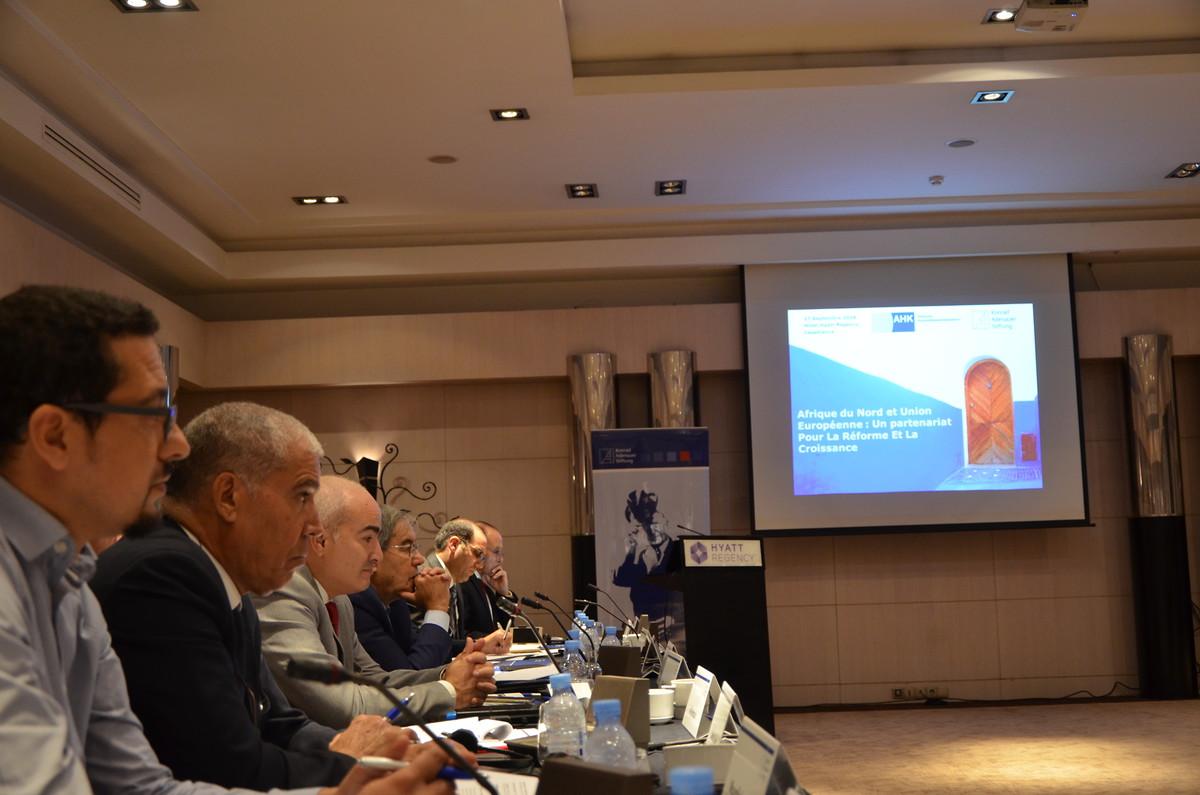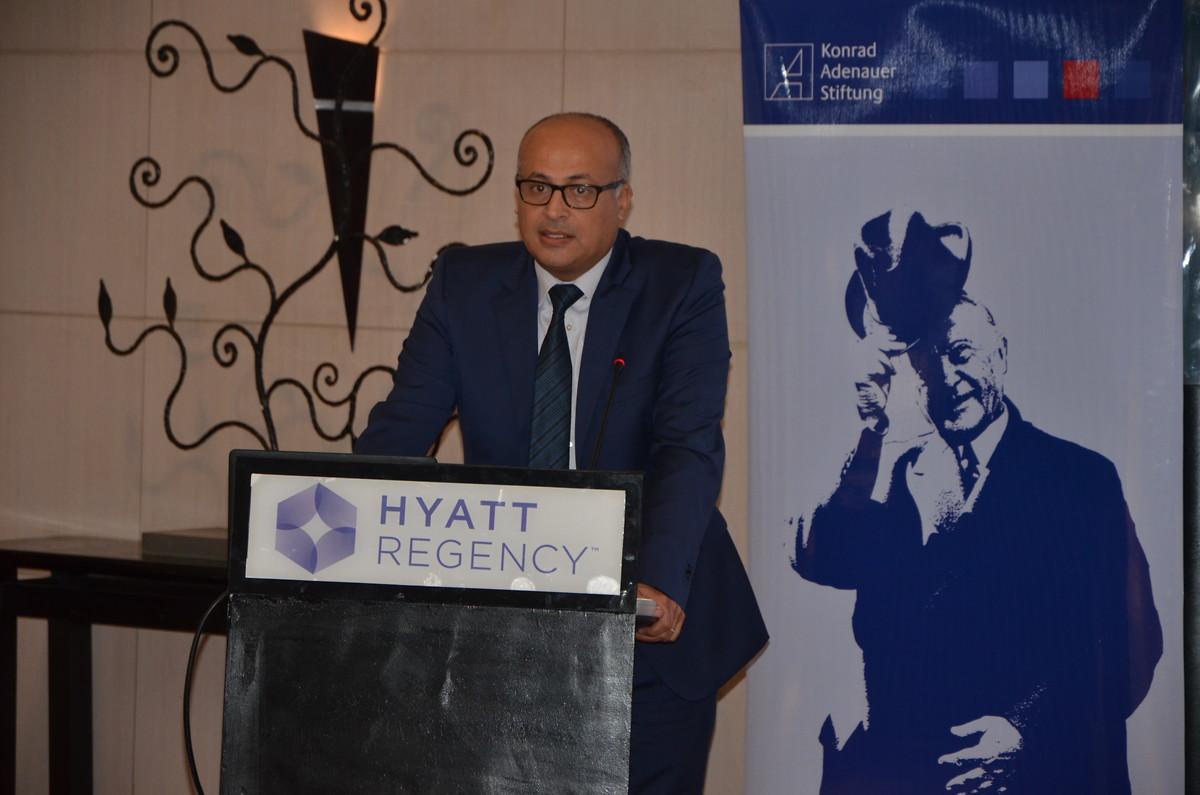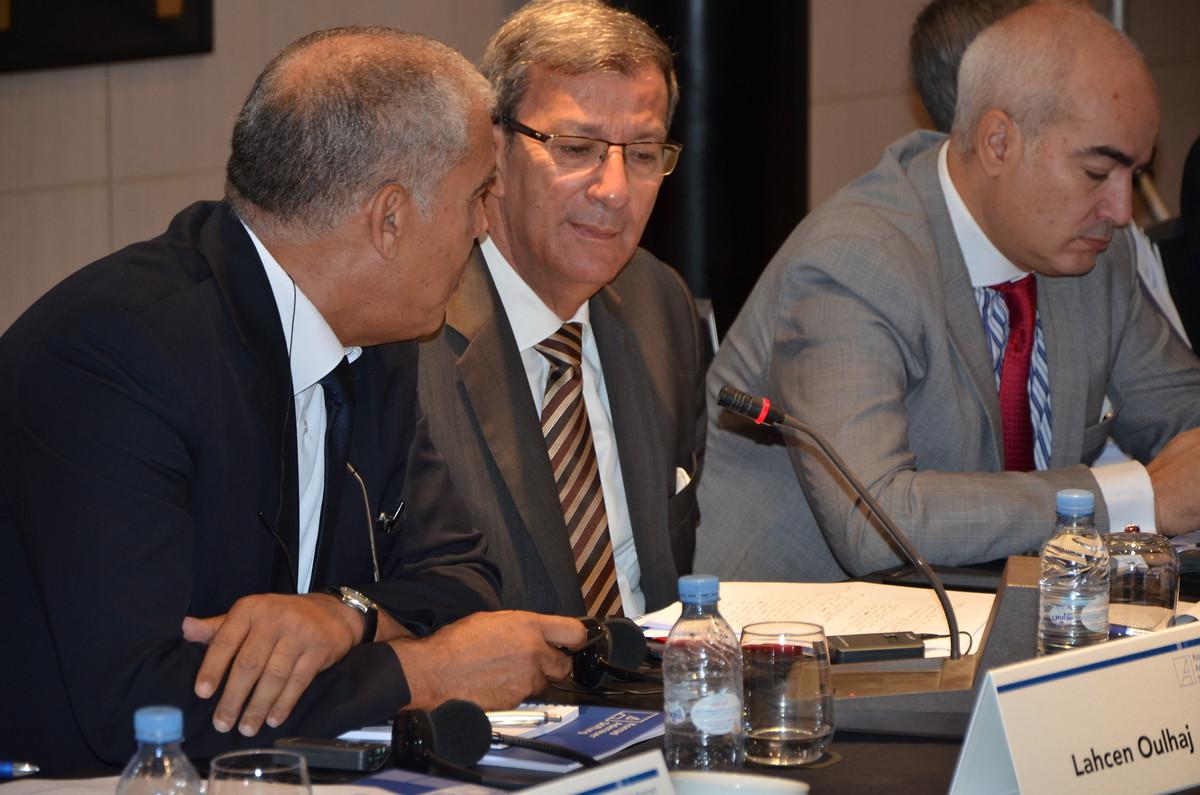Event reports
KAS Regional Program Political Dialogue South Mediterranean invited representatives of private sector organizations, chambers of commerce, think tanks, as well as entrepreneurs and academics from Algeria, Morocco and Tunisia to a conference in Casablanca on September 27, 2016 to review the challenges for economic growth and integration in the region. The main objective of the conference was to explore new approaches to overcome these in conjunction with the EU.
North Africa is not just the southern neighborhood of the European Union. It is undoubtedly one of the most important partners of the European Union, and vice versa. Moreover, North Africa is Europe’s most important juncture to and from Sub-Saharan Africa. This offers great potential to North Africa to participate in the economic growth of the continent while having access to Europe’s markets, goods, know-how and investment. A real partnership for reform with North Africa would however have to dramatically increase investment from the EU, both by development banks and by private enterprises, as well as open European markets more thoroughly for North African goods and services. But the largest potential for economic growth lies in regional integration within North Africa itself. Here, important challenges remain to be overcome.
The conference was started off with two opening speeches by Dr. Canan Atilgan, Director of the KAS Regional Program Political Dialogue South Mediterranean and Mr. Slim Kchouk, President of the German Chamber of Commerce and Industry (AHK) in Morocco. Both speakers emphasized the challenges for economic growth and reform in the Maghreb, but also stressed the opportunities that lie within deeper regional integration and a strengthened partnership with the European Union. Dr. Canan Atilgan expressed her hope that the conference will yield concrete ideas on how to improve the partnership between the EU and Maghreb states.
In the following five panels, the participants discussed weak and strong points of the current economic performance in North Africa, potentials of and obstacles to regional economic integration between Maghreb states, the necessary framework to attract investment in the region and the role the private and the public sector respectively play in this field, priorities in the reform process, and the potentials that lie in a deepened partnership with the European Union.
During the panels and the discussion the low quality of education and the skills mismatch between the education system and the labor market were identified as one of the main obstacles to inclusive and sustainable economic growth in the region. The participants agreed that a reform of the education system is necessary in order to develop the countries’ human resources as basis for a strong economy and that the private sector should be included in the process in order to ensure that the reforms are tailored in a way to enable private sector growth. At the same time, the private sector is not able to provide a sufficient number of adequate employment opportunities for job-seekers and therefore the fostering of entrepreneurial spirit and the support for young entrepreneurs was discussed as important part of the development strategy. Entrepreneurship is also seen as advancing innovation and fostering the transition into knowledge economies.
Another prominent topic was identifying the reasons for the currently low levels of economic integration between North African states, both in the fields of trade and investment. Lacking infrastructural connections, the overall weak business and investment climate, but also political mistrust between the countries were identified as explanations for these low levels of integration.
Moreover, speakers stressed the need for a “re-industrialization” of their countries in order to foster value-added production both for the domestic economies and for export. Particularly the “new” industrial sectors such as the automobile and the aerospace industry were given as examples for strong sectors that can drive economic growth. This is connected to the efforts of diversification of economies in order to enable growth over the long-term.
Concerning the relationship with the European Union, it was remarked that the relationship remains asymmetrical, with the Maghreb states exporting mainly primary goods to the EU and importing processed goods and services. Additionally, some speakers pointed to the lasting perception of North Africa as a market rather than also a place for investment. The participants also critically discussed the advantages and disadvantages of EU association agreements with their countries.
In the closing remarks Raouf ben Debba, President of the German-Tunisian Chamber of Commerce and Industry, and Helmut Reifeld, KAS Resident Representative in Morocco, pointed towards the future of the EU-Maghreb relations and the need to find new ways of cooperation in order to fully develop the potentials this partnership offers in terms of economic growth.
About this series
The Konrad-Adenauer-Stiftung, its educational institutions, centres and foreign offices, offer several thousand events on various subjects each year. We provide up to date and exclusive reports on selected conferences, events and symposia at www.kas.de. In addition to a summary of the contents, you can also find additional material such as pictures, speeches, videos or audio clips.





